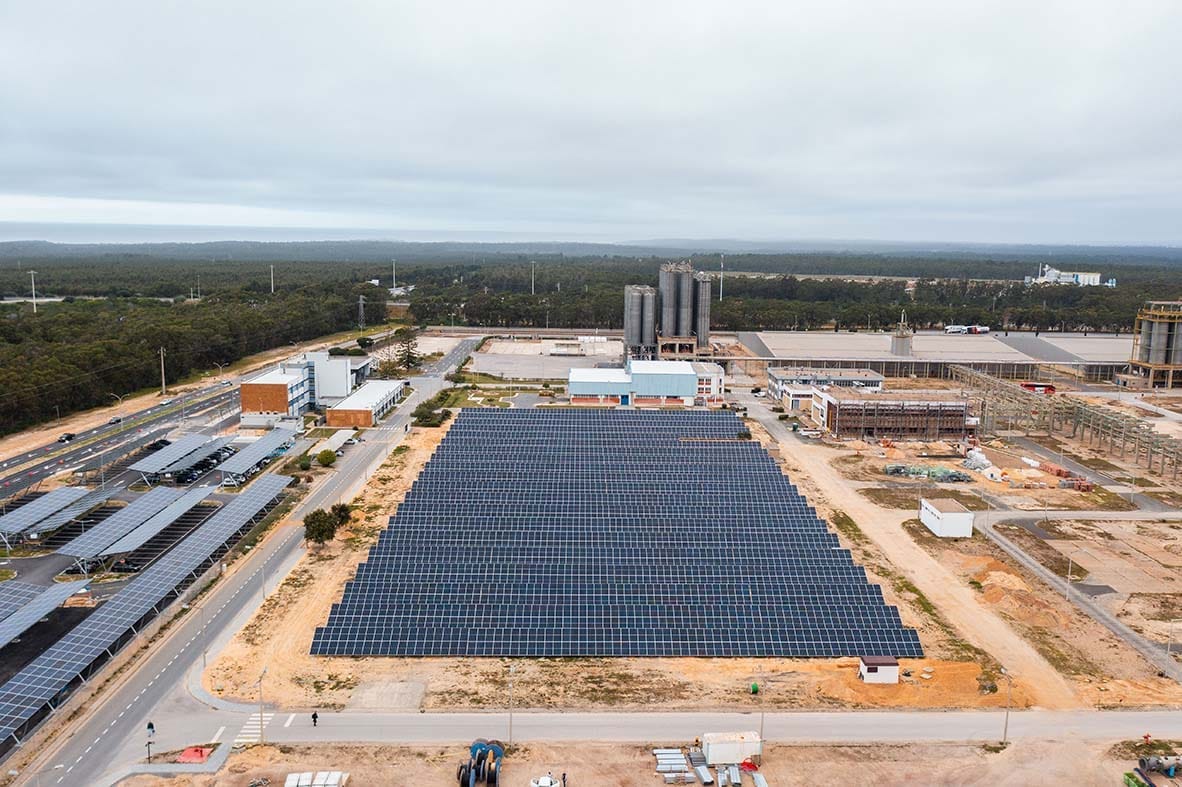Portugal lands major Repsol investment
The Spanish energy company confirmed its decision to halt its domestic green hydrogen projects, while going ahead with a 4 MW electrolyser in Sines, Portugal.

What?
This week, Spanish energy supplier REPSOL announced its decision to put on hold three electrolyser projects in Spain – Tarragona (150 MW), Cartagena (100 MW) and Bilbao (100 MW) – after the government retained a temporary 1.2% tax on revenues from energy companies.
Meanwhile, REPSOL also announced that it would invest €15 million in the development of the new electrolyser in Sines, where the company is already building two 100% recyclable polymer plants for the pharmaceutical, automotive and agri-food industries.
The oil company explained that this investments adds to the the €657 million already planned, which will make it possible to increase green hydrogen production capacity fivefold.
The investment includes the installation of a 4 MW electrolyser that “will serve to generate commercialisation opportunities” once the needs of the two new polymer plants in Sines are “satisfied”.
According to ECO, this five-fold increase in production capacity does not change the electrolyser’s installed power, since the amount of hydrogen it produces depends entirely on the hours the infrastructure operates and its efficiency.
Impact of Spanish tax
In addition to Repsol, other Spanish energy companies have already signalled their dissatisfaction with the evolution of the tax framework in the country, namely Iberdrola, Naturgy, Endesa and Cepsa, according to the newspaper Expansíon.
These companies have initiated contacts with the Spanish government and other political figures to try to stop the Sánchez government’s decision to extend the extraordinary tax.
Meanwhile, several green hydrogen projects in Europe have been delayed or cancelled recently due to high production costs and low appetite from buyers.
“The numbers for these [green hydrogen] projects are already difficult and the tax makes them more challenging,” said the spokesman.
The Spanish levy was introduced in 2022 to cut windfall profits from energy firms, as the government vowed to curb spiralling energy bills.



